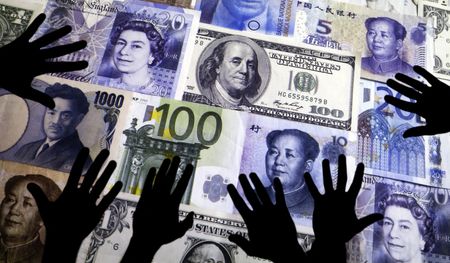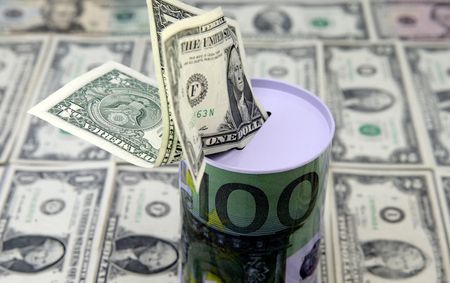By Chris Taylor
NEW YORK (Reuters) – How much is enough?
Be it about money or other measures of success, that is the question Manisha Thakor faced as she approached her 50th birthday. The personal finance expert and author found herself on bed rest from health battles, worrying that she was literally working herself to death.
“I had hit a wall,” Thakor remembered. “I faceplanted in terms of having nothing left to give. I had squeezed myself dry trying to chase after more. I needed to figure out the antidote and find out how I had ended up that way.”
As challenging as that period was, one good thing came out of it: her new book, “MoneyZen: The Secret to Finding Your ‘Enough.'”
The idea challenges virtually every societal norm. After all, we are all conditioned to chase after more money, work and accomplishments.
Wanting more for ourselves and our family makes perfect sense. But at a certain point the endless pursuit can tip into obsession, harm relationships and damage our mental well-being.
To Thakor’s surprise, the book she wrote for mid-career professional women resonated with a much larger audience.
“I’ve been blown away by how this feeling I’m describing transcends incomes, or ages, or gender, or professions,” she said. “No matter how much you earn or achieve, this feeling is remarkably widespread.”
DO THE HARD WORK OF SELF-EXAMINATION
If you feel you are not enough, the reason may go back to childhood. If your family had constant money worries, for example, that struggle could be an imprint that affects the rest of your life.
In fact, executive coaches told Thakor that almost all of their clients are working through old trauma.
“The only way out is through,” she said. “You have to do the hard work of figuring out which factors have caused you to get to this place. In my case, it was the idea that my self-worth equals my net worth.”
FLIP THE WAY YOU THINK ABOUT YOUR LIFE
Success is more than a dollar figure in a bank account.
“I realized at age 50 that I had spent three decades living for my net worth,” Thakor said. “Replace those toxic equations: Figure out how to maximize the allocation of scarce resources – time and money – towards improving your financial health and emotional wealth.”
GIVE YOURSELF PERMISSION TO ACHIEVE LESS
It might seem counterintuitive, but being constantly busy is a kind of avoidance. If every minute of the day is crammed with tasks, then we have no time to think about the larger questions like whether we are enjoying our lives and our work.
Aim for less.
“When I first came across this concept, I thought, ‘What a horrible thing to say to people!'” Thakor said. “But think about it: We are all so constantly rushed and amped and overwhelmed. If you give yourselves permission to achieve less, it’s a way to allow yourself to live more.”
None of this is easy in a money-driven world filled with images of perfect lives in advertising and social media.
Just considering the concept of “enough” is a good start, to get us off the endless treadmill and enjoy the present a little more.
As for Thakor herself: After all she has been through, does she feel enough?
“Not every day,” she admits. “On some days, I find myself sucked back into the vortex. But a lot of days, yes, I am enough.”
(Editing by Lauren Young and Richard Chang)


